Table of Contents
- Policy Template Bundle
- 10+ Cooperative Policy Templates in PDF | DOC
- 1. Cooperative Personal Policy Template
- 2. Cooperative Policy Development Format
- 3. Cooperative Condominium Policy Statement Template
- 4. Cooperative Committee Policy Example
- 5. Cooperative Policy Template
- 6. Cooperative Board Policy Sample
- 7. Cooperative Course Policy Template
- 8. Cooperative Policy in PDF
- 9. Cooperative Board of Directors Policy Template
- 10. Basic Cooperative Policy in PDF
- 11. Cooperative Association Credit Policy Template
- How to Prepare a Cooperative Policy Document?
- What do You Understand by Cooperatives?
- What are the Types of Cooperatives?
- What are the Advantages of Cooperatives?
- To Conclude!
10+ Cooperative Policy Templates in PDF | DOC
The cooperative policy is the list of rules and regulations based on which a cooperative organization functions. This is the protocol that guides the functioning of the cooperatives to avoid any kind of disputes and issues. Here are some policy templates that you can check out to get a detailed knowledge of the policies that are framed for cooperatives.

Policy Template Bundle
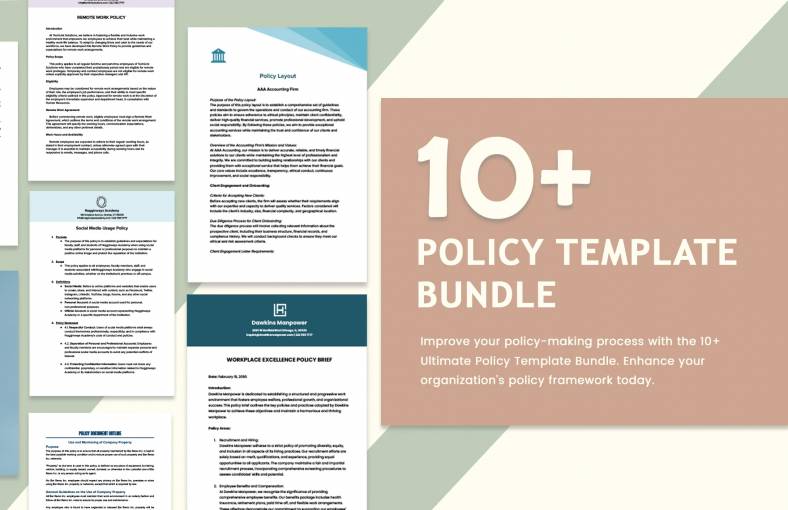
10+ Cooperative Policy Templates in PDF | DOC
1. Cooperative Personal Policy Template
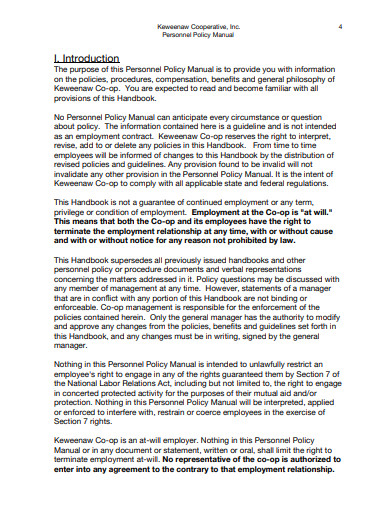 keweenaw.coop
keweenaw.coop2. Cooperative Policy Development Format
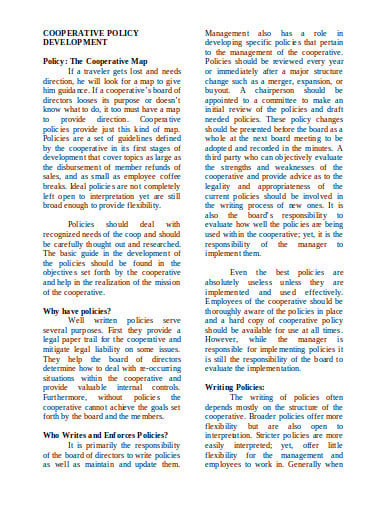 agecon.okstate.edu
agecon.okstate.edu3. Cooperative Condominium Policy Statement Template
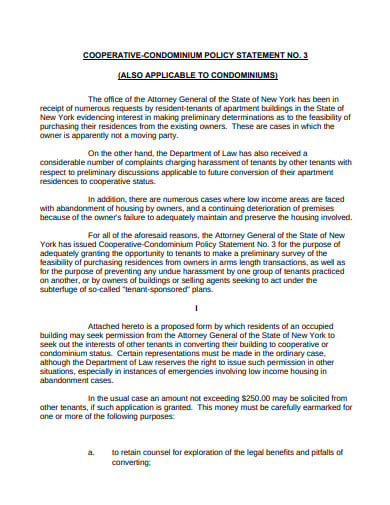 ag.ny.gov
ag.ny.gov4. Cooperative Committee Policy Example
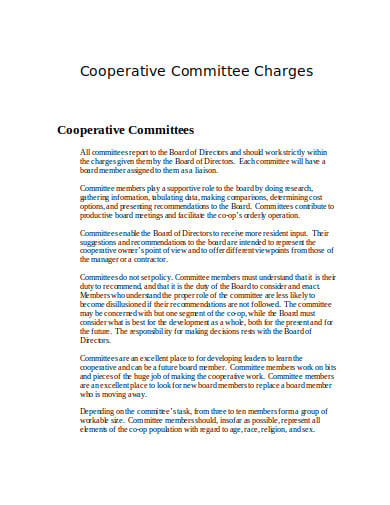 mahc.coop
mahc.coop5. Cooperative Policy Template
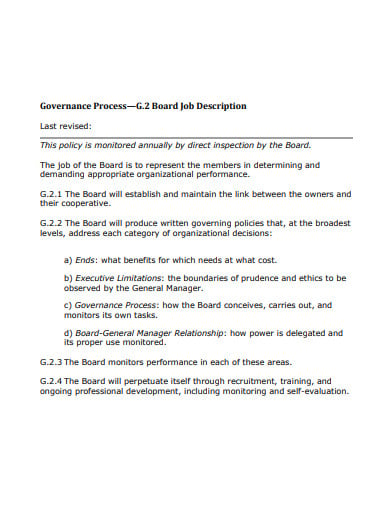 hubspot.net
hubspot.net6. Cooperative Board Policy Sample
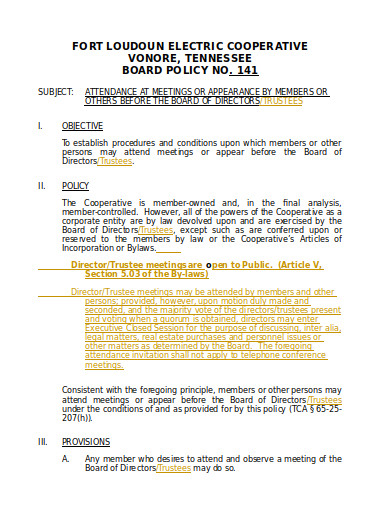 flec.org
flec.org7. Cooperative Course Policy Template
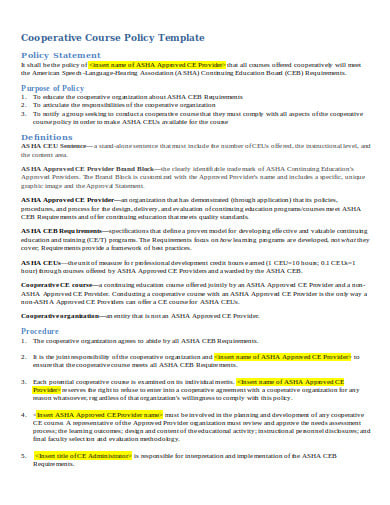 asha.org
asha.org8. Cooperative Policy in PDF
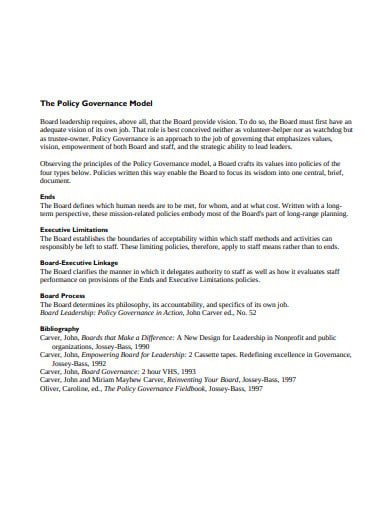 coopfoodstore.coop
coopfoodstore.coop9. Cooperative Board of Directors Policy Template
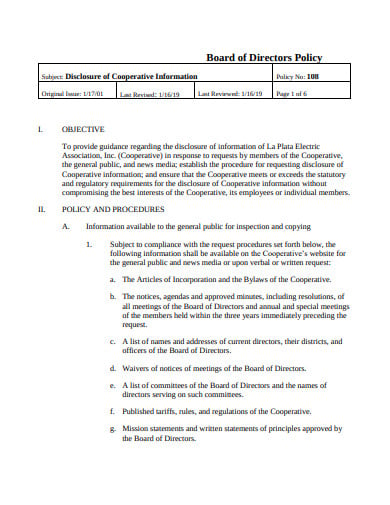 lpea.com
lpea.com10. Basic Cooperative Policy in PDF
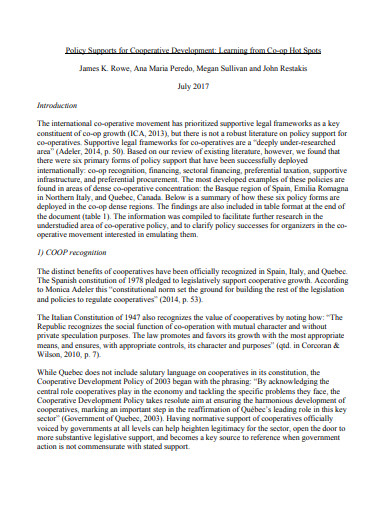 ccednet-rcdec.ca
ccednet-rcdec.ca11. Cooperative Association Credit Policy Template
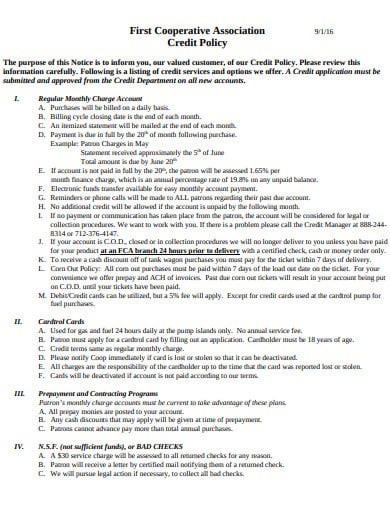 firstcoop.com
firstcoop.comHow to Prepare a Cooperative Policy Document?
Step 1: Make a Word File
Make the word document where you want to draft the policy. Use Microsoft Word as your computer application to formulate the document of the policy.
Step 2: Formulation of the Policy
Draft the policy that you want to prepare for the cooperative. Go through all the proceedings for the drafting process and put it into the document that you have just prepared.
Step 3: Checking the Document
After you are finally preparing the document check whether there is an error in the document or in the drafting process. You need to be careful of any mistakes and rectify it before it is made into an official document.
Step 4: Evaluation of the Policy
Make an evaluation of the policy that has been formulated. You need to check and review it. This will ensure whether the pointers that are mentioned can be followed and are worthy of being followed.
Step 5: Implementation of the Policy
Now implement that policy to check its functioning. If doubt arises or there is any problem with the policy after the implementation process you can always change it and replace it.
What do You Understand by Cooperatives?
Cooperatives are autonomous organizations that are handled and controlled by a group of people for their social, economic, cultural aspirations and needs. These are jointly-owned democratic enterprises. The people who control or have the authority uses the products and the services produced by the cooperative. This is mostly focused on the benefits of the members rather than earning profits from the investors.
What are the Types of Cooperatives?
There are basically 5 types of cooperatives. There are more but the major ones are the 5 mentioned here.
-
Retail Cooperatives
These are one type of “consumer cooperatives” that help the retails stores to get consumer benefits. This allows the consumer to supply their needs, do the bargaining, share the earnings, etc. They are arranged in the form of local groups or communities owning their own retail store.
-
Worker Cooperatives
The members of these types of cooperatives are both the employees as well as the owners of the business. Therefore, the management is in the hands of the employees hence they can mold it in a way they want as per the preference.
-
Producer Cooperatives
These are the types of cooperatives that are created, owned and operated by the producers themselves. The decision lies in the hands of the producers whether they want to work alone or in groups. The method is cost-effective and reduces third party involvement.
-
Service Cooperatives
These are the cooperatives that are more or less similar to the retail cooperatives that are, consumer cooperatives. This also allows the same kinds of advantages that you get in retail cooperatives.
-
Housing Cooperatives
These provide a special type of homeownership. This allows the opportunity to the homeowners to share the cost of their ownership. It is formed or incorporated in a form of business where the owners jointly own their business.
What are the Advantages of Cooperatives?
-
Equality of Status
The best benefit that you can get from this system is the style of democratic management. A single person does not dominate the decision of the organization. This is the type of structure that makes the organization more stable and more organized. The policy of one-member and one-vote makes the organization more strong and members have equal power.
-
The Debt Risk is Lowered
The debt risk is lowered until and unless the debts are caused by fraudulence or negation. The liabilities are limited to the members’ investment in the cooperative.
-
Benefits in terms of Economy
There are own sets of economic benefits that the members receive from the cooperatives in terms of special merchandise discounts, patronage dividends, etc.
-
Control Over the Cooperatives
The members enjoy more liberty and autonomy than businesses controlled by investors. In this case, the members have complete liberty over the cooperative.
-
Advantage of Taxes
The Cooperatives have tax exemption to a certain limit. The members are taxed ones, from their income. They are not separately taxed on the individual or corporate level.
To Conclude!
The policy is developed by all the members together. The moto is individual and mutual benefit. Therefore all the members have an equal contribution in framing the policy. They are also equally responsible to abide by the policies and the protocols that have been set.

